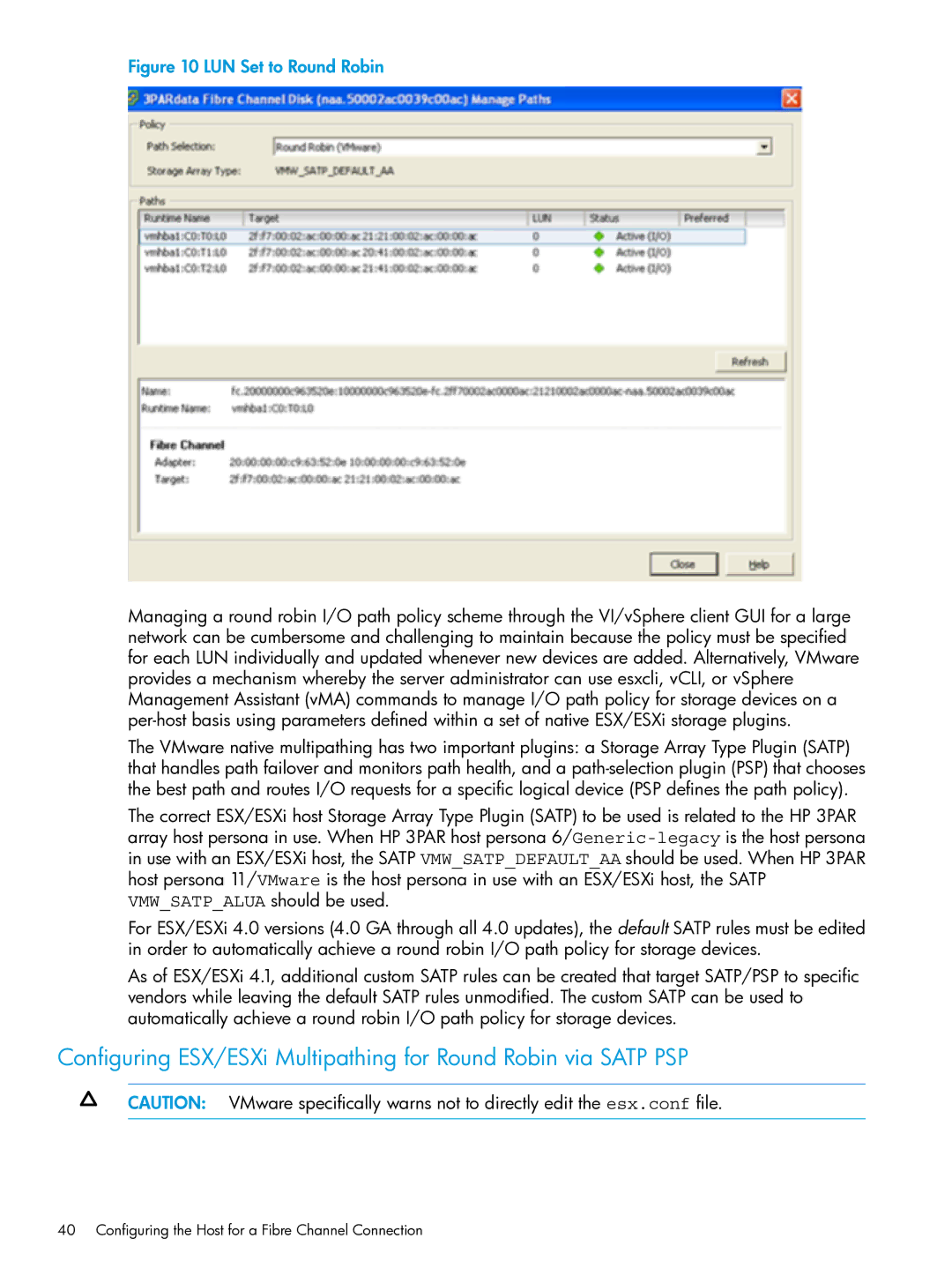
Figure 10 LUN Set to Round Robin
Managing a round robin I/O path policy scheme through the VI/vSphere client GUI for a large network can be cumbersome and challenging to maintain because the policy must be specified for each LUN individually and updated whenever new devices are added. Alternatively, VMware provides a mechanism whereby the server administrator can use esxcli, vCLI, or vSphere Management Assistant (vMA) commands to manage I/O path policy for storage devices on a
The VMware native multipathing has two important plugins: a Storage Array Type Plugin (SATP) that handles path failover and monitors path health, and a
The correct ESX/ESXi host Storage Array Type Plugin (SATP) to be used is related to the HP 3PAR array host persona in use. When HP 3PAR host persona
For ESX/ESXi 4.0 versions (4.0 GA through all 4.0 updates), the default SATP rules must be edited in order to automatically achieve a round robin I/O path policy for storage devices.
As of ESX/ESXi 4.1, additional custom SATP rules can be created that target SATP/PSP to specific vendors while leaving the default SATP rules unmodified. The custom SATP can be used to automatically achieve a round robin I/O path policy for storage devices.
Configuring ESX/ESXi Multipathing for Round Robin via SATP PSP
CAUTION: VMware specifically warns not to directly edit the esx.conf file.
